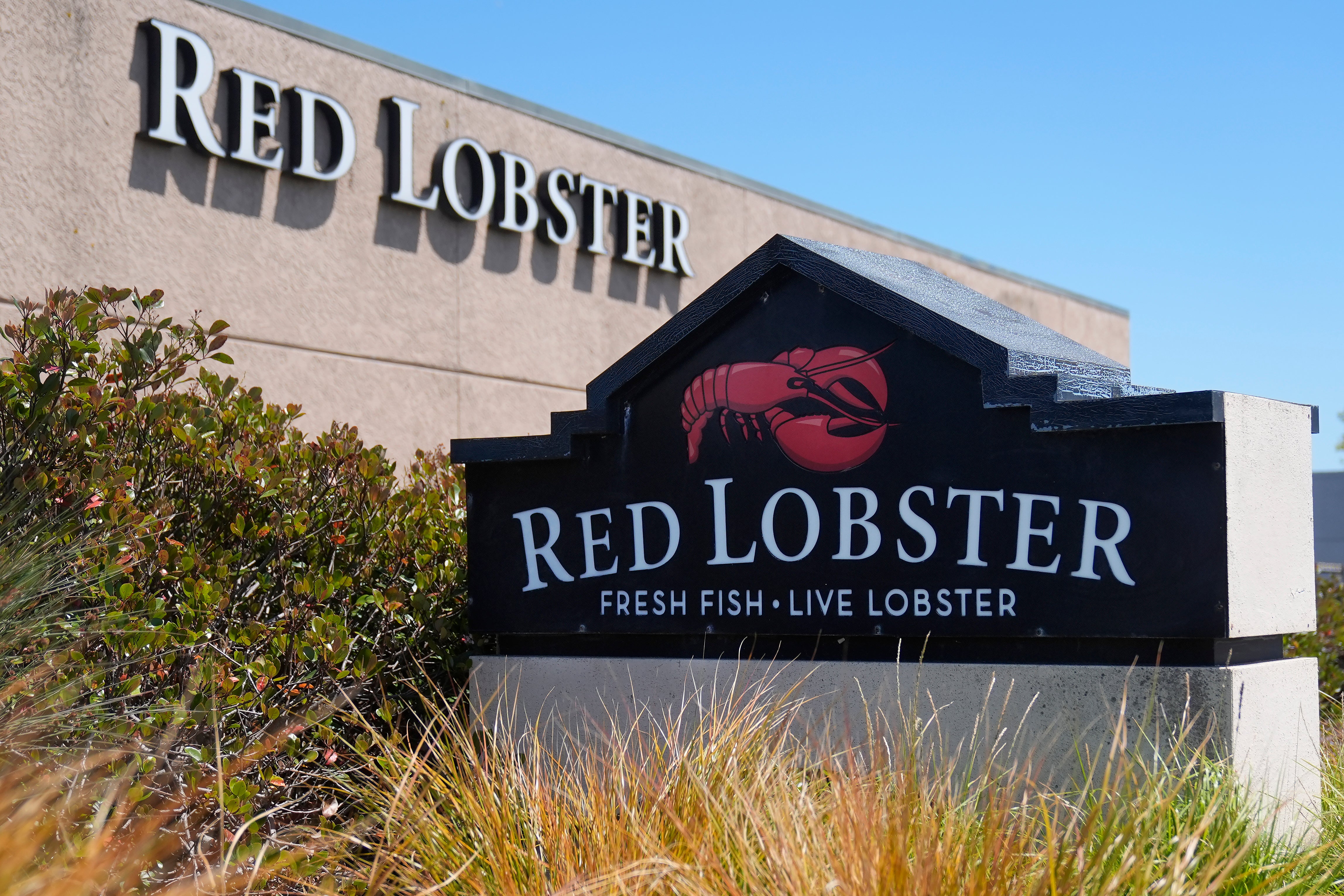Red Lobster closes two dozen more restaurants after 100 shut down following bankruptcy
Last fall, Red Lobster lost $11m on its Ultimate Endless Shrimp promotion, which charged $20 for all-you-can-eat shrimp deal
Your support helps us to tell the story
From reproductive rights to climate change to Big Tech, The Independent is on the ground when the story is developing. Whether it's investigating the financials of Elon Musk's pro-Trump PAC or producing our latest documentary, 'The A Word', which shines a light on the American women fighting for reproductive rights, we know how important it is to parse out the facts from the messaging.
At such a critical moment in US history, we need reporters on the ground. Your donation allows us to keep sending journalists to speak to both sides of the story.
The Independent is trusted by Americans across the entire political spectrum. And unlike many other quality news outlets, we choose not to lock Americans out of our reporting and analysis with paywalls. We believe quality journalism should be available to everyone, paid for by those who can afford it.
Your support makes all the difference.More Red Lobster closures are on the horizon for the struggling seafood restaurant.
Red Lobster, which had announced it was restructuring after declaring bankruptcy earlier this year, will close 23 stores according to a recent court filing. This is in addition to more than 100 Red Lobsters that have already closed this year.
Once the closure is finished, Red Lobster will operate approximately 500 stores, down from the 650 it operated at this time last year, CNN reports.
Red Lobster is looking for a buyer for the restaurant chain as part of its bankruptcy proceedings. Fortress Credit Corp, a lender that owns Logan's Roadhouse, J Alexander's and specializes in restaurant management, is expected to buy the chain.
The lender announced on Monday that it was planning to put former PF Chang's CEO Damola Adamolekun in place as Red Lobster's CEO once the bankruptcy proceedings conclude. Adamolekun helmed the Chinese-food chain for four years before leaving in August 2023.

Last fall, Red Lobster lost $11 million on its Ultimate Endless Shrimp promotion, which charged $20 for all-you-can-eat shrimp deal.
“We knew the price was cheap, but the idea was to bring more traffic in the restaurants,” Ludovic Garnier, the chief financial officer of Thai Union Group, Red Lobster's former co-owner, said in an earnings call with investors.
Garnier said the deal worked, and that restaurant traffic increased. But guests chose the $20 deal at a higher rate than expected, according to Garnier.
“We don't earn a lot of money at $20,” Garnier noted. For the first nine months of 2023, Thai Union Group — one of the world's largest seafood suppliers — reported a $19m share of loss from Red Lobster.
Thai Union Group announced in January it would end its minority investment in Red Lobster. Thiraphong Chansiri, the group’s CEO, said the pandemic, industry trends, and rising operating costs drove the decision and caused Red Lobster “prolonged negative financial contributions to Thai Union and its shareholders.”
Thai Union Group began its investment in Red Lobster in 2016 and upped its stake in 2020.
Restaurants in general have had a rough go of it this year thanks to inflation-driven financial pressures.
Inflation has forced Americans, whose salaries have not kept pace, to rethink how and when they shop and eat out. This has pushed some already-struggling retailers and restaurants to the brink, sparking a rash of bankruptcies and the closures of nearly 3,200 store locations in 2024.
Earlier this year, Applebee's announced it would close between 23-35 stores this year, and Hooters said it would close down dozens of underperforming restaurants as well.
Fast food restaurants have also struggled. LendingTree recently conducted a survey of 2,000 American adults, asking about their views and buying habits when it comes to fast food purchases.
Nearly 80 per cent said fast food was a "luxury" due to the increased cost of meals. Half of the respondents said they view fast food as a luxury specifically because they're struggling financially. For Americans making less than $30,000, 71 percent considered fast food a luxury, as did 58 percent of parents with young children.
Burger King, McDonald's, Taco Bell and other fast food brands have responded to inflation by releasing low-cost value meals, with mixed results.

Join our commenting forum
Join thought-provoking conversations, follow other Independent readers and see their replies
Comments